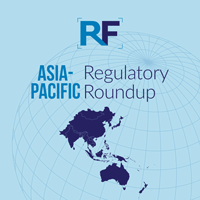Asia-Pacific Roundup: CDSCO grants flexibility to ease transition to new device requirements
 AsiaBiologics/ biosimilars/ vaccinesDiagnostics/IVDsMedical DevicesOceaniaPharmaceuticalsProduct LifecycleRegulatory Intelligence/Policy
AsiaBiologics/ biosimilars/ vaccinesDiagnostics/IVDsMedical DevicesOceaniaPharmaceuticalsProduct LifecycleRegulatory Intelligence/Policy AsiaBiologics/ biosimilars/ vaccinesDiagnostics/IVDsMedical DevicesOceaniaPharmaceuticalsProduct LifecycleRegulatory Intelligence/Policy
AsiaBiologics/ biosimilars/ vaccinesDiagnostics/IVDsMedical DevicesOceaniaPharmaceuticalsProduct LifecycleRegulatory Intelligence/Policy